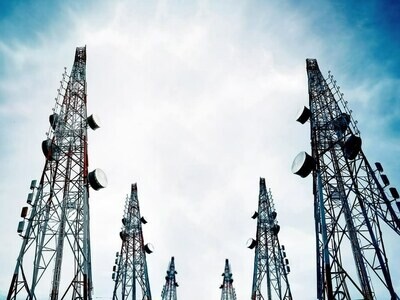Abolishing Right of Way (RoW) charges in the telecoms sector – fees paid for the legal right to install and operate infrastructure – augurs well for the country, telecom experts told Business Recorder.
With the number of digital workers increasing in the country in the next couple of years, it will help their contribution to the national economy grow faster and reach new heights, they said, adding that better nternet services will help scale up internet literacy, while giving people from far-flung and impoverished areas an opportunity to revamp living standards.
Veteran telecom expert Pervez Iftikhar told this publication: “Let me first give you the good news: the National Highways Authority (NHA) and Pakistan Railways (PR) have already abolished Right of Way (RoW) charges. Hopefully soon all the municipalities, cantonments, and housing authorities will follow. In the longer run we need proper legislation which ensures that Right of Way charges are at most nominal, and are applicable all over the country.“
“Secondly, the positive impact of this is huge, on fixed as well as mobile internet connectivity. For optimum mobile internet quality (especially 4G and 5G), towers need to be connected with optic fibres.”
Abolishing Right of Way charges eliminates one big and unnecessary expense from optic fibre investments, he explained.
However, it must be noted that optic fibres are still capital intensive with long payback periods. Therefore, the government must “do more” regarding duties and taxes at all stages – from imports to usage.
He said, “We can improve our internet disruptions and dead signals by addressing two primary aspects: optic fibres and spectrum.”
He said progress has been made with optic fibres by addressing the Right of Way issue, and hopefully, more reforms will follow soon.
The spectrum issue
However, the situation with spectrum is quite different. Pakistan has one of the lowest allocated spectrums in the world. Although those in authority are well aware of this issue, they seem unable to take effective action. It is unclear whether it is an insurmountable challenge or just incompetence.
Spectrum is either not released for auction, or when it is released, the auction floor price is set so high that it does not present a viable business case for investors, who also need to invest heavily in physical infrastructure later on.
Meanwhile Dr Noman Said, CEO SI Global Solutions, said the government’s steps to address the challenge of RoW charges to boost fiberization across the country will increase the outreach of fast broadband internet across the country, including metropolis, small cities, villages and remote sites of industries zones.
The fiberization process will also facilitate highway and railway authorities and users of their services, he said. Internet coverage should be made better in commercial areas of major cities first and then expanded to other areas.
As the policy is favorable now, telecom and broadband operators should invest in infrastructure for laying optic fiber and rollout internet services in tourist destinations, as well as industrial, energy and mineral-rich areas to facilitate business for acquiring internet-enabled systems within their operations.
The National Fiberization Policy – through its Digital Economy Enhancement Project (DEEP) – aims to connect 7.5 million households to fibre-optic networks and achieve 80% fibre-to-the-site (FTTS) coverage by 2030, while boosting average download speeds to 60 Mbps. The policy focuses on expanding Pakistan’s fixed broadband infrastructure to support emerging technologies like 5G and the Internet of Things.
Pakistan currently has 211,000 km of optical fibre cable (75,967 km long-haul, 135,506 km metro), but officials note this falls short of rising demand because of barriers like high RoW charges and complex approvals.
Pakistan Freelancers Association (PAFLA) Chairman Ibrahim Amin said the penetration of internet services in different areas will increase internet literacy among the masses, and give them better revenue-making opportunities.
The availability of fast and uninterrupted internet in remote areas will empower masses, particularly the youth, to acquire education and skills online and then offer their services to different parts of the country and the world without leaving their hometown.
He pointed out that the government should also address the challenge of electricity availability make devices affordable for fast adoption of technology.
“I foresee that the number of digital workers will increase in the next few years and their contribution to the economy will also grow,” he said.


